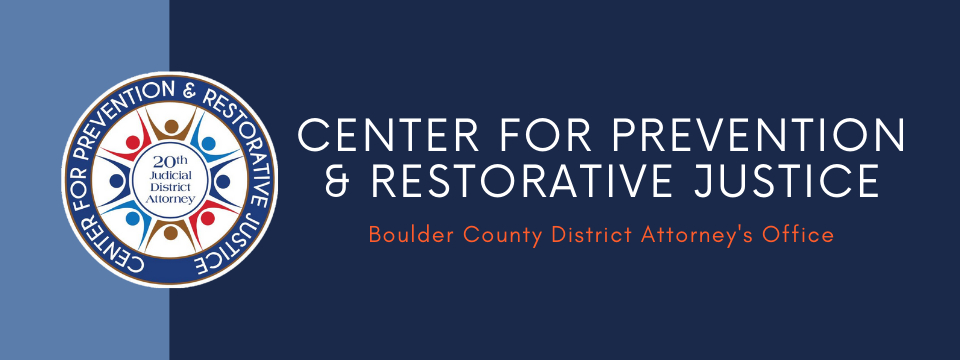At Center for Prevention and Restorative Justice we rely on volunteers to help support and facilitate restorative processes.
To be considered, we require folks to complete our 4-hour Restorative Justice Community Member training. This provides a foundation in restorative practices and equips those who are interested in volunteering to serve as a community member in restorative processes. In this role, volunteers support accountability and meaningful repair of harm through active participation and input in a restorative process. They elevate community concerns and help responsible parties consider the impact their actions had on the broader community. They also contribute ideas when the group brainstorms ways to address and repair harm. Restorative Justice Community Member training is offered entirely online several times each year.
Those wishing to facilitate with our program must complete our 20-hour Facilitator Training in addition to the Restorative Justice Community Member training. Facilitator Training provides the groundwork, skills, and practice for folks to onboard into a facilitative role. The Facilitator training is offered annually, entirely online, typically over the course of 3 days (one day a week for 3 consecutive weeks). There is an application process for Facilitator Training as space is limited.
For all volunteers, we require:
- Application (following completion of Community Member Training)
- Interview
- Fingerprinting & Record Check
- Confidentiality and Policy Agreement and Acknowledgement
- Criminal Justice Information Services (CJIS) certification (provided).
Volunteers are expected to continue to build and strengthen their practice through participation in additional training, case debriefs, and skill-building sessions. These typically occur via quarterly team meetings, which are hybrid and offered at the end of the business day to support accessibility.
Onboarding Process:
Once folks are onboarded as volunteers, they are invited to participate in and/or facilitate cases with staff. This allows new volunteers to receive mentoring and support as they gain competence and confidence. It also supports a culture of continuous learning and feedback. They are then paired with mentor facilitators to support their development and engagement.
After completing the orientation and onboarding process, volunteers then have the flexibility to sign up for community member opportunities and schedule when they facilitate based on their availability. Time commitment for a community member is usually 2-hours per case. Facilitators commitment is typically 5-10 hours per case, divided over the course of several weeks. We don’t have a minimum number of cases we require folks to sign up for, though we do want our volunteers to remain active and to invest for at least a year.
Initial Training:
Meet the training requirement(s) to volunteer:
- 4-hour Restorative Justice Community Member Training (for those seeking to contribute as a volunteer Community Member in restorative processes)
- 20-hour Restorative Justice Facilitator Training (in additional to Community Member training, for those seeking to volunteers as Facilitators)
You can view a list of current training opportunities on our Events page. If you would like to receive emails about future training opportunities, sign up for our DARJ training-interest outreach list.


